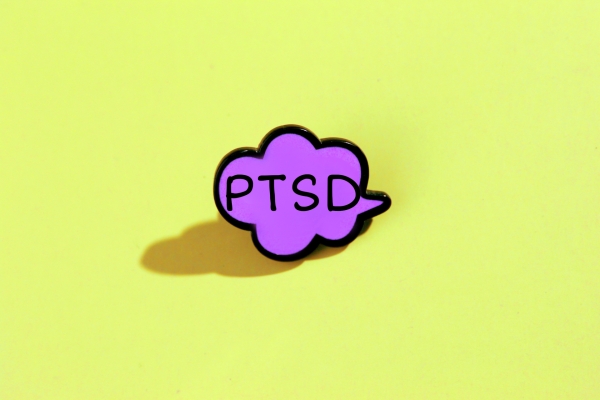The Disruption of Identity Through Grief
Sep-2024PTSD - signs and symptoms you should be aware of
PTSD - signs and symptoms you should be aware of
2023-07-04

Barely anyone talks about PTSD among bereaved parents, and we have decided to change that.
When someone mentions PTSD, everyone thinks about the soldiers in the war or some other people who have faced tragedies such as earthquakes or floods. But, if you didn't know, PTSD can occur in anyone who has suffered from severe trauma. And that's exactly what happens when you lose a child - you witness the trauma that follows you through your entire life.
PTSD can happen to every bereaved parent, but it mostly happens to mothers, especially to those mothers who have spent a lot of time with their children in hospitals before they died. You can experience PTSD if you have lost your baby after a traumatic birth as well. PTSD is common among NICU parents too. I'll talk more about babies, birth, and NICU in some other blog posts, so if these topics interest you be sure that you follow our updates in the blog section.
PTSD occurs among fathers when they face accidents in which they lose their children. It's a huge burden to know that you weren't able to protect your family. You'll feel like you've betrayed them.
This article is made with the purpose to help you find out if you have developed PTSD, so you can understand what is happening to you and seek proper treatment to get better.
PTSD, or post-traumatic stress disorder, usually includes these signs and symptoms:
1. Feeling that the tragedy is happening again, very real, in front of your eyes. You'll not only see pictures related to your trauma but also hear sounds and feel smells. It will be very real - like the tragedy is happening over and over again, right here and right now. This is very exhausting and can make you feel like you're losing your mind.
2. Nightmares & flashes. When you're not awake, the memories related to the tragedy will haunt you during your sleep. You'll experience a lot of heavy nightmares, together with flashes of the event or the moments when you heard the news related to your loss.
3. Physical symptoms. You'll have difficulty breathing, experience symptoms similar to a heart attack, and have spasms throughout your body. Needles and pins are also common, as well as panic attacks.
4. Heavy anxiety. When the memories come back in the form of PTSD, you'll have trouble with extreme anxiety and it will be very hard for you to focus on the present moment and reality.
5. Nausia, sweating and trembling. A lot of bereaved parents claim that they have also experienced these unpleasant physical symptoms. They may come with flashes or may come separated. You'll feel tired and drained.
The trauma bond is real and strong. Some people can recover from PTSD after 6 months, but many need a year or more. PTSD is related to other mental health issues, including depression, substance use, and various anxiety disorders.
A lot of people who suffer from PTSD tend to isolate themselves and develop social anxiety.
How to treat PTSD?
The two most common ways to treat PTSD and feel better again are through talk therapy and medicine. Of course, it is very important that you can share your feelings with others and get support if possible and when needed.
That is exactly why we have created this website - to help you get through the hardest moments of the grieving process and feel understood and that you are not alone.
For severe PTSD cases, psychiatrists usually prescribe antidepressants. We'll talk about antidepressants in some of the upcoming blog posts as well.





